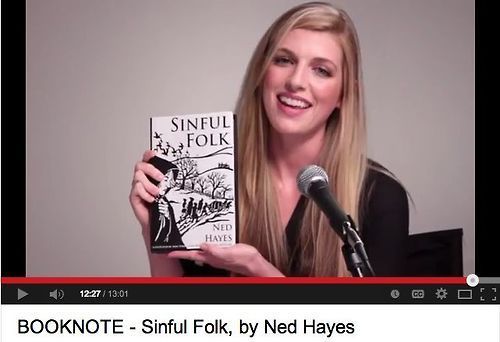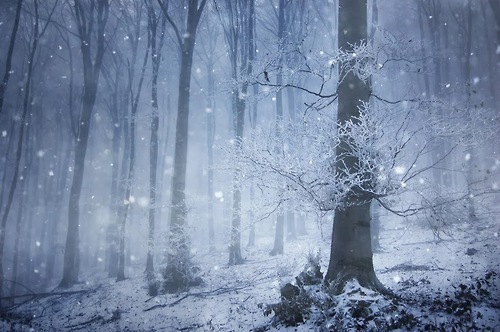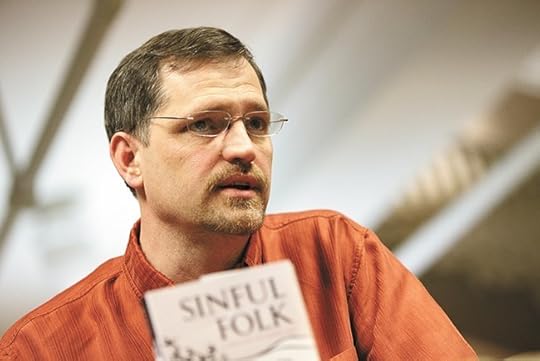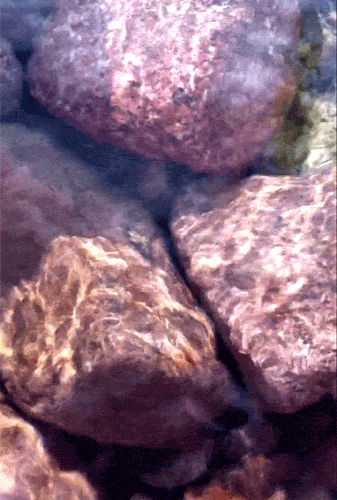Ned Hayes's Blog, page 119
February 21, 2014
BookNote interview about new historical novel SINFUL FOLK by Ned...

BookNote interview about new historical novel SINFUL FOLK by Ned Hayes, with cover & illustrations by NY Times bestseller Nikki McClure
February 20, 2014
"Frost crackles on the sheepskin as I push it away, white plumes...

"Frost crackles on the sheepskin as I push it away, white plumes of breath rising in the faint light. For years, I have arisen at Lauds, before dawn: in this hour, the deep darkness of the sky is touched with royal blue.
The landscape has changed in the night. A vast shroud of snow drowns every feature, the unceasing tide sweeping over the land, covering the path and the campsite.
Under the new snow, our campsites are hidden, like the holes of vermin, buried among the rocks and drifts. Above us now, the high hill is peaked with an overhang of snow that curves like a butcher’s blade above our hollow.”
"I read because one life isn’t enough, and in the page of a book I can be anybody."
- R. Peck (via thisismydesignn)
February 19, 2014
Trade Secrets: What It Means to be a Writer

Journalist-turned-fiction author Ned Hayes offers his two cents on what it means to be a writer
click to enlarge

PHOTO CREDIT: Young Kwak
Ned Hayes’ new novel, Sinful Folk, was published last week and can be found at bookstores and on Amazon.com.
Ned Hayes does his homework, a clear sign that he’s a reporter at heart.
An hour-long conversation with him about writing — in a bookstore, of all places — and I immediately realize he’s well versed with anything to do with writing, from the fact that John Updike wrote in his underwear to prevent interruption, to Alice Walker’s belief that ghosts were telling her their stories and she was simply writing them down, to Stephen King’s immense frustration while writing Carrie — he threw his manuscript out, and his wife had to pick it up, dust it off and offer her assistance on how to write from a teenage girl’s perspective.
The man knows what job he wants, and he’s done extensive research to make sure he gets it right. After graduating from Whitworth University with a degree in English, he started as a newspaper reporter before making the switch to high-tech. He now makes a living as a writer masquerading as a strategist at Intel in Seattle.
But old research and reporting habits die hard. His most recent digging around has led to the publication of Sinful Folk, a novel based on a real-life fire in 1377 in England that killed five young boys, and the subsequent quest to find their killer. It’s a mix of fact and fiction, and Hayes says that was the best part of writing it: There’s a lot of freedom in the capability as a novelist to take a real history and jump off from it and invent things. But as a result, he doesn’t think he’ll ever be able to return to the start: journalism.
“I don’t think I’ll go back to journalism because it’s a very different set of skills and a different medium,” Hayes says. “I think I’ve destroyed some of my capabilities in that area, because now I just make stuff up.” That came with a steep learning curve, though. Hayes says he had to learn to write from different characters’ perspectives, and write about characters who don’t necessarily have anything in common with him. Sinful Folk‘s protagonist is a woman, who — although she disguises herself as a man for years — doesn’t have very many shared experiences with Hayes, if she has any at all.
“I just had to take one character and show her backstory. I didn’t know I’d be writing this kind of story at all,” he says. “I just started the story and she gradually started telling me things about her life. It’s kind of like Alice Walker and her ghosts. This was the first time I ever felt compelled to write a story that wasn’t mine.”
Hayes says he’s on the fence regarding ghosts, but believes there’s some truth that you have to trust your subconscious to tell a story. That’s not even the most difficult part. “Perseverance is the hardest part of writing,” he says. “You can’t expect the muse to strike every day, but if you show up every day, you’ll be there when the muse strikes.”
These days, Hayes spends his daily writing time (4-8 am if he can get himself out of bed) chugging along on the first draft of a novel à la The Hours with the working title Garden of Earthly Delight, inspired by Hieronymus Bosch’s painting of the same name. It’s about a pair of contemporary scholars, trying not to fall in love, who are reading love letters. They discover that a poet they thought was in one relationship was actually in another, and their love stories cross one another.
“Stories that are in parallel between that era and this era are tricky, because you have to match the emotional tones. I’m still fleshing it out,” Hayes says. “But I have about three-quarters of the manuscript done.”
As far as advice for aspiring writers goes, Hayes has a few nuggets of wisdom. He suggests listening to editors and teachers, taking their criticism seriously, and making the process as collaborative as possible:
“Writing is never a one-man or one-woman show; it’s a collaboration of people providing valuable insight. Keep writing, be consistent and be sure that you’re writing because you want to tell a story that matters. Make your stories have import and heart. That’s my advice.” ♦
Trade Secrets: What It Means to be a Writer was originally published on NedNote
"I’ve always written by hand. Mostly with a fountain pen, but sometimes with a pencil—especially for..."
-
Paul Auster (The Art of Fiction, No. 178). (via the-library-and-step-on-it)
(Me too — I like to write by hand! I wrote a lot of revisions and drafts for Sinful Folk and other novels by hand in notebooks)
"Spring grew into summer, and the rhythm of my life now...

"Spring grew into summer, and the rhythm of my life now included Nell. I learned that her secret thyme and mint beds were deep in the woods, out by the chuckling stream that disappeared underground.
She gathered plants she needed every day, and she was as a child who gathers flowers in May, setting them in bundles, choosing with caprice, singing to them, naming each plant and leaf with fond- ness. She danced in the sunlight and the shade. Even watching her a moment, my spirits lifted.”
February 18, 2014
BookNote Interview with Riana Nelson
BookNote Interview with Riana Nelson was originally published on NedNote
Seattle Wrote.: Seattle Author: Writing a Truthful Representation of a 14th Century Story
Interesting experience being interviewed for the book blog Seattle Wrote
Here’s a nice takeaway quote:
“Ultimately, I like to think that I write about common human questions. The past influences the present, and the need to find connection with each other – those human needs are the same across the centuries,” he said. “It’s a question of, can you redeem yourself? Can you mend relationships, and make your life have meaning? Can you find meaning and value and in some sense, salvation – saving yourself and finding your true self?”
Referencing something he read that author Alice Walker said, about how the ghosts of the past actually tell her their stories, Ned “Always thought that was silly. But in this novel, I really had that feeling with Mear. I felt that I was telling Mear’s story, and not mine. That was a fascinating experience, too,” he said. “Her humanity and experience as a person is the most appealing. Being able to see things through her eyes, gives us richer empathy for each other and helps us not to objectify each other … The human experience shouldn’t be subjected to one gender or one perspective.”
Read more from the Interview Here »
Seattle Wrote.: Seattle Author: Writing a Truthful Representation of a 14th Century Story was originally published on NedNote
"There are some who believe to speak of a thing is to summon it...

"There are some who believe to speak of a thing is to summon it into the world, and Tom speaks with such conviction. We become so quiet the loudest noise is the sizzle of burning tree sap. The darkness around us presses down, as if to listen. The music of the wind rises and falls with the swirls of the snow, the creaking of the sea of branches in the darkness above us."
is about words: 22 Best Writing Tips
These writing tips cover the basics and the most important aspects of writing.
Do it. Write.
Read as much and as often as you can. Remember, every writer is a reader first.
Keep a journal or notebook handy at all times so you can jot down all of your brilliant ideas.
Make…



